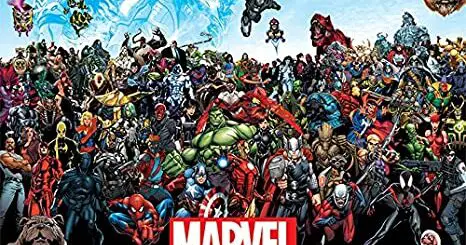‘Ms. Marvel’ Star Iman Vellani Has One Major Problem with the MCU…
The most dominant film franchise in the industry presents very few complaints from die-hard Marvel fans, but Ms. Marvel star Iman Vellani has one major problem with the MCU.
It has been a long time coming, as fans have waited patiently for the eventual arrival of one of Marvel’s most beloved comic book heroes.

Source: Marvel Studios
Kamala Khan has been a fan-favorite hero for quite some time, and her popularity has only grown in more recent years, with her unique and unmatched ability to connect to younger comic book readers in very unique ways.
A character that is defined by a very unique circumstance and situation, Kamala Khan’s complicated relationship with her heritage and the modern world creates a situation that is both perfectly unique to her, and relatable to almost all readers.

Source: Marvel Studios
The young actress tabbed with bringing the character to life is the perfect example of perfect casting, as she shares a lot of what makes Kamala, well, Kamala; down to her obsession with the Marvel Universe.
It is that obsession that brings to life Ms. Marvel Star Iman Vellani’s one major problem with the MCU…

Source: Marvel Studios
In a recent interview, the young actress spoke about the one big thing that routinely bothers her about the Marvel Cinematic Universe; its numeric distinction across all multiversal realities of the Marvel Universe.
Yep, that’s the thing.
Speaking with Deadline (reported by ComicBook.com), Vellani stated, “I like to say [the comic book universe] is 616. I don’t think the MCU is 616. As much as Kevin Feige would have us believe it 616, it’s 199999.”

Source: Marvel Studios
It does seem like a very fair criticism, as the canonization of the Marvel Cinematic Universe as 616 doesn’t fall in line with the overall labeling of the comic book universe as a separate- but still technically connected entity.
This is the wonders- and confusing nature- of the multiverse as a concept; if both the comic book universe, and the cinematic universe, exist in the same sphere of reality, then could they both share the same numerical distinction? Vellani makes a good case as to why not.

Source: Marvel Studios












